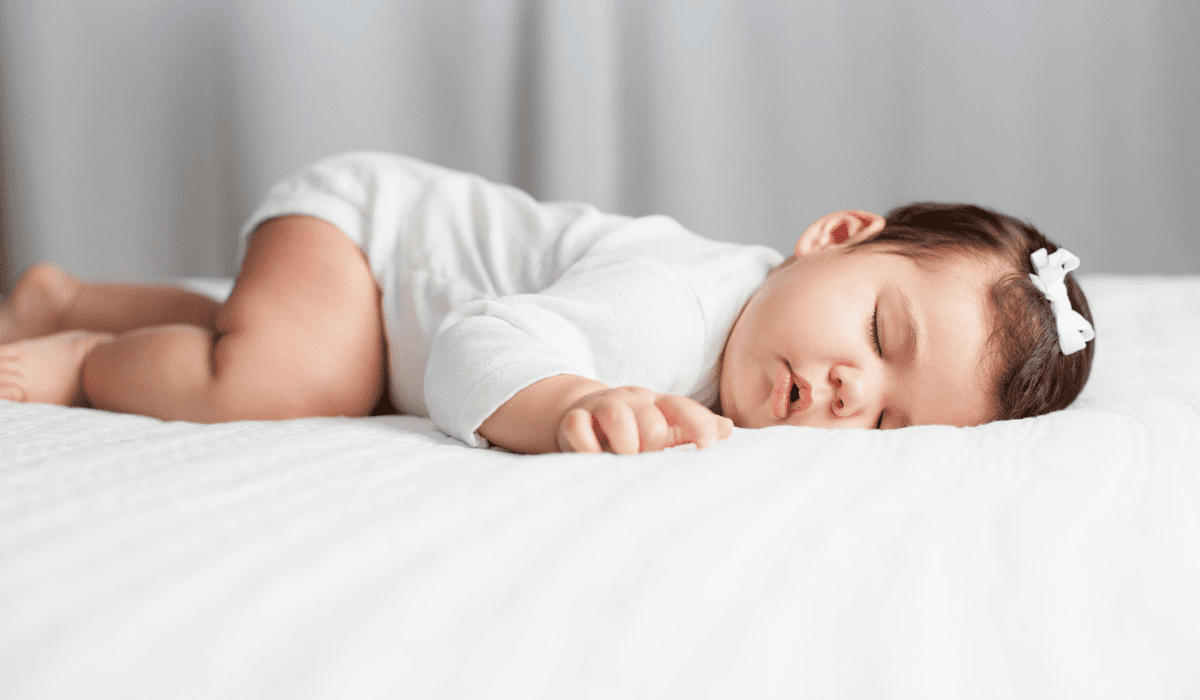Why do Babies Sleep with their Butts in the Air

Sleeping positions are a common topic of discussion among new parents, and one of the most popular positions is when babies sleep with their butts in the air. Although it may seem unusual, this position is entirely natural and common among infants. In this article, we will explore the reasons behind this sleeping position and the benefits it offers to the baby.
The Mechanics of Baby Sleep
Before we delve into why babies sleep with their butts in the air, it’s essential to understand the mechanics of infant sleep. Newborn babies spend most of their day sleeping, with periods of wakefulness that last only a few hours. During sleep, infants experience rapid eye movement (REM) sleep, which is essential for their development. REM sleep allows their brains to process and store information, which is critical for their cognitive and physical growth.
Reasons Why Babies Sleep with Their Butts in the Air
- Comfort
One of the main reasons why babies sleep with their butts in the air is for comfort. This position helps to alleviate pressure on the baby’s stomach, which can be uncomfortable, especially after feeding. Additionally, babies have a natural tendency to curl up in a fetal position, which makes it easier for them to feel secure and comfortable while sleeping.
- Temperature Regulation
Another reason why babies sleep with their butts in the air is to regulate their body temperature. During sleep, babies lose heat through their heads and feet, which can cause them to wake up. By raising their butts in the air, babies can increase airflow around their bodies, which helps to regulate their body temperature and keep them comfortable.
- Digestive System
Babies also sleep with their butts in the air to aid digestion. When babies sleep on their stomachs, they put pressure on their tummies, which can cause discomfort and increase the risk of reflux. Sleeping with their butts in the air can help to alleviate this pressure and aid digestion, reducing the risk of discomfort and reflux.
- Spinal Cord Development
Sleeping with their butts in the air can also aid in the development of a baby’s spinal cord. Infants are born with a natural curvature in their spine, which straightens out as they grow. Sleeping with their butts in the air helps to maintain this natural curvature, which can aid in the development of a healthy spine.
Sleeping with their butts in the air is a common sleeping position for babies, and it offers several benefits. While it may look uncomfortable to adults, it is actually quite comfortable and beneficial for infants. Here are some of the benefits of sleeping with their butts in the air:
- Reduced Risk of SIDS
One of the most significant benefits of this position is that it can help reduce the risk of Sudden Infant Death Syndrome (SIDS). This is because sleeping on their backs can lead to an increased risk of SIDS, while sleeping on their stomachs can be dangerous. Sleeping with their butts in the air allows babies to breathe more easily and reduces the risk of SIDS.
- Improved Breathing
Sleeping with their butts in the air can also improve breathing for babies. The position allows for better airflow and can help reduce snoring, coughing, and congestion. It can also help prevent the tongue from blocking the airway, which can be a concern for some infants.
- Better Sleep Quality
When babies sleep with their butts in the air, they are more likely to sleep more soundly and deeply. This is because the position is comfortable and allows them to relax fully. This can lead to better sleep quality for both the baby and the parents.
Overall, sleeping with their butts in the air can provide significant benefits for infants. It is important to ensure that the sleeping position is safe and comfortable for the baby, and to follow safe sleeping practices. Parents should consult with their pediatrician if they have any concerns about their baby’s sleeping habits or if they notice any issues during sleep.
Conclusion
In conclusion, sleeping with their butts in the air is a common and beneficial sleeping position for babies. This position offers several advantages, including reduced risk of SIDS, improved breathing, and better sleep quality. Parents should ensure that the sleeping position is safe and comfortable for their baby, and follow safe sleeping practices. As with any sleeping position, it is important to consult with a pediatrician if there are any concerns about the baby’s sleeping habits or if any issues arise during sleep.
RECENT ARTICLES
